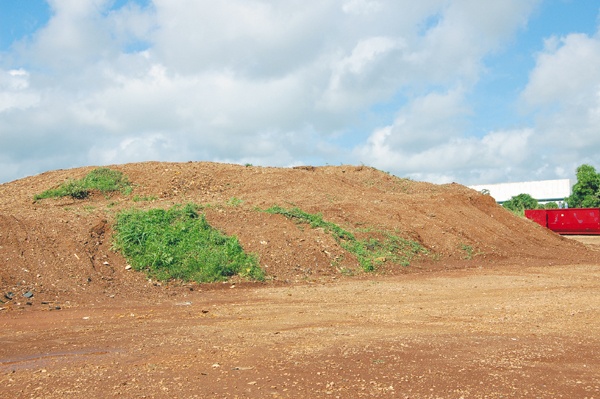LIHUE — The cost of dumping could be, well, dumped.
The Kauai County Council will hold a public hearing today on a bill that could waive waste disposal fees for approved cleanup efforts on county land.
It is a move that some say will help cut the red tape associated with doing volunteer work for the county.
Surfrider Kauai Vice President Carl Berg said he and other volunteers regularly collect about 500 pounds of marine debris during their beach cleanups throughout the island.
Properly disposing of it, however, can be an equally difficult task, especially when volunteers are assessed a fee, based on vehicle size, weight and class, for the nonrecyclable material taken to county disposal sites.
“It’s a red tape and a hassle for having to do community service,” Berg said “I can understand commercial ventures being charged the fee but we’re trying to do a public service to help clean their beaches, so why should we be charged for doing that?”
Bill 2509 could change that.
If it is approved by the council, the measure would waive county-imposed fees for refuse collected from cleanup projects in the public interest that are conducted on government-owned properties and approved by the county engineer.
Troy Tanigawa, Department of Public Works environmental services management engineer, said these charges, called tipping fees, are charged by the Department of Public Works to anyone who delivers solid or liquid waste to a county-managed landfill, refuse transfer station or debris recycling station.
Those disposal fees for facilities without vehicle scales, according to county codes, range from $6 for trash hauled in automobiles to $20 for trash hauled in full-size pickup trucks, cargo vans and trailers.
“While the bill is being proposed in anticipation of Japan tsunami debris washing up on Kauai shores, waiving tipping fees for county-sponsored volunteer cleanup activities on an ongoing basis is in the county’s best interest,” Tanigawa wrote in a Oct. 7 letter addressed to the council. “Volunteer cleanup efforts encourage clean public lands, community stewardship and provide cost savings to the county.”
While no specific numbers were available this week on how much debris from the 2011 earthquake and tsunami reached Kauai’s shores over the past two years — or how much potential revenue from the fees the county could lose out on — Tanigawa said the proposed waivers will allow volunteers to remove these public safety hazards from the island’s beaches.
Discerning tsunami debris from other trash on the beach is not always easy, Berg said, especially when no Japanese writing is present.
What is equally uncertain is how much more debris is expected to reach the islands.
“After the tsunami happened, what we got at first were things that could float like large black floats or buoys, boats, refrigerators, but some of the debris, since that time, have become waterlogged and sank,” Berg explained. “What we’re getting now are smaller things like intricate woodwork from houses.”
The proposed draft bill also allows the county engineer to waive landfill tipping fees on a case-by-case basis for contaminated soil and other solid waste generated from cleanup projects on county land or land leased by the county.
This provision, Tanigawa said, could save the county some money on an ongoing project to remediate a now unused portion of the Puhi Metals Recycling Center, where scrap metals and vehicles were once stored.
Puhi Metals Recycling Center, operated by Resource Recovery Solutions, is the only on-island site permitted by the state Department of Health to receive and process ferrous metals, vehicles and household appliances, such as refrigerators, washers and dryers.
Without a waiver, he said the county could be charged a 15 percent administrative fee added on to the total cost due for tipping fees, if landfill tipping fees apply to the cleanup contractor.
This one-time cleanup effort, Tanigawa said, began nearly a year ago and is projected to be completed within the next 12 to 18 months.
The meeting begins at 9 a.m. at The Historic County Building.





